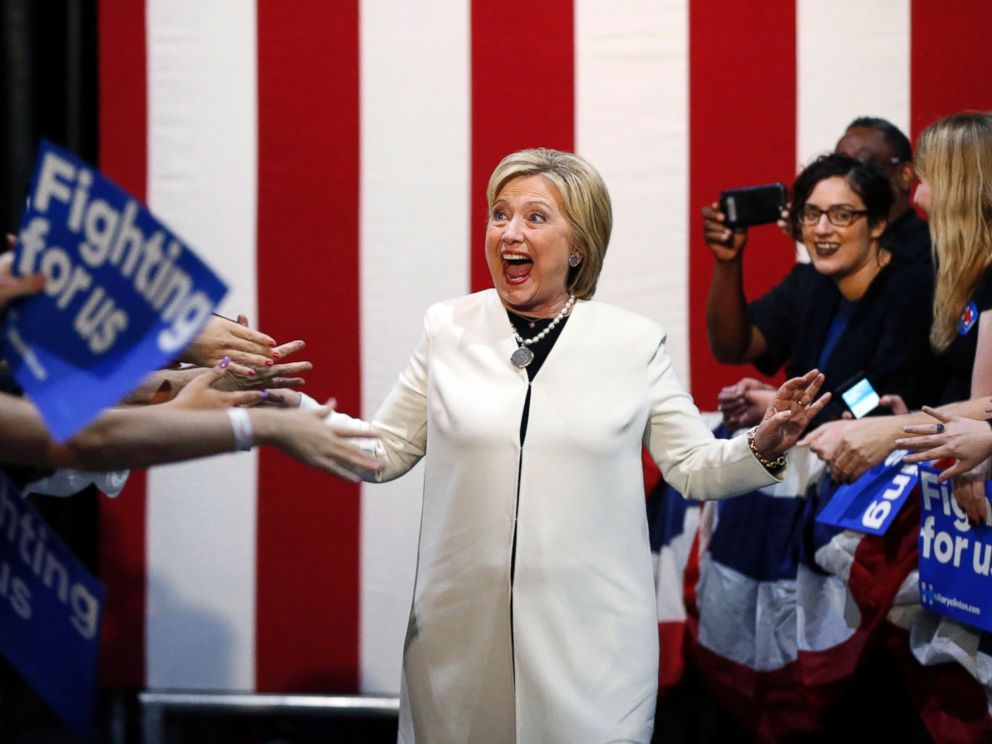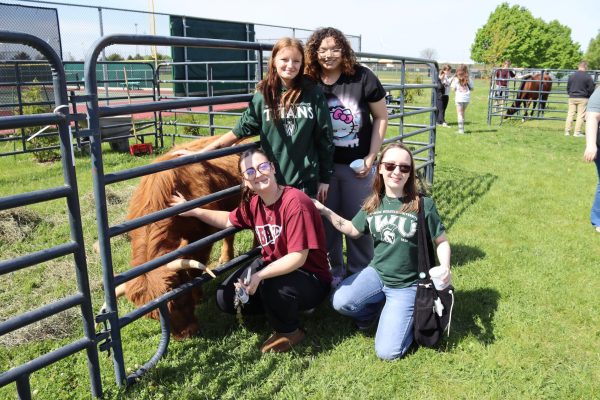Trump, Clinton prevail on Super Tuesday
Hillary Clinton greets her supporters prior to giving her Super Tuesday victory speech in Miami, Fla., Tuesday, March 1, 2016.
The first Tuesday in March is always regarded as the most important day of the presidential campaign season. Super Tuesday holds both Republican and Democratic primaries in 11 states, including: Alaska, Alabama, Arkansas, Colorado, Georgia, Massachusetts, Minnesota, Oklahoma, Tennessee, Texas, Vermont, and Virginia.
Candidates Hillary Clinton and Bernie Sanders went head to head in hopes of securing the 2,383 delegates that are required to be the nominee of the Democratic party. Clinton took Alaska, Arkansas, Georgia, Massachusetts, Tennessee, Texas, and Virginia, raising her total number of delegates won to 1,052. Contrary to the thematic success of political outsiders during this election cycle, America’s earliest primaries have shown that not everyone is “feeling the Bern”. Vermont senator Bernie Sanders is a majority favorite among millennials, a demographic that reinforced the idea that younger Americans aren’t proactive in government. Sanders won Colorado, Minnesota, Oklahoma, and Vermont, acquiring a low total of 427 delegates.
On the Republican front, 1,327 delegates are needed to win the nomination, 562 of them were up for grabs on that fateful Tuesday. Donald Trump won Alabama, Arkansas, Georgia, Massachusetts, Tennessee, Vermont and Virginia, which amounted to 237 delegates, raising his total number of delegates to 319. In second place, Ted Cruz won Alaska, Oklahoma and Texas, giving the Texas senator’s gross delegate total of 226. Marco Rubio won Minnesota and now has 110 delegates. Ohio governor John Kasich and retired neurosurgeon Ben Carson, did not take the cake in any states, however Kasich now rests in the fourth place position with 25 delegates. Dr. Carson, however, made the decision to suspend his presidential campaign after only having 8 delegates post-Super Tuesday.
After the votes had been counted, CNN reported: “He proved it in the early states and now he has proven it on Super Tuesday: Donald Trump is leading a coalition. New Hampshire and Massachusetts showed he wins white, working-class moderates — the Reagan Democrats. South Carolina, Tennessee, Alabama and Georgia showed he wins evangelicals in the Bible Belt. And record-shattering Republican turnout in Virginia showed he expands the party’s base of voters.” The media hub continued by quoting the billionaire: “I’m a unifier — I know people are going to find that a little bit hard to believe, but believe me.”
While many would argue that Trump’s self proclaimed “unity skills” are as false as his claim that Mexico would pay for the infamous wall. However, this claim isn’t entirely false. Trump has unified his voters, from Klu Klux Klan members to white collared Christians, this diverse group has given him such a significant lead that the possibility of anyone else claiming the nomination is little to none.
Similarly, many people think that the Democratic nomination is as much Clinton’s as the Republican nomination is Trump’s. Fox News reported on Clinton’s post-victory actions, stating: “Speaking in Florida after notching several wins, Clinton also seemed to look beyond Sanders – taking implicit shots at Trump’s “make America great again” campaign slogan.”
Looking to the future, the latest CNN/ORC poll shows that in the general election if Clinton and Trump were to face off, America would say hello to its first woman president by a margin of only eight points.






